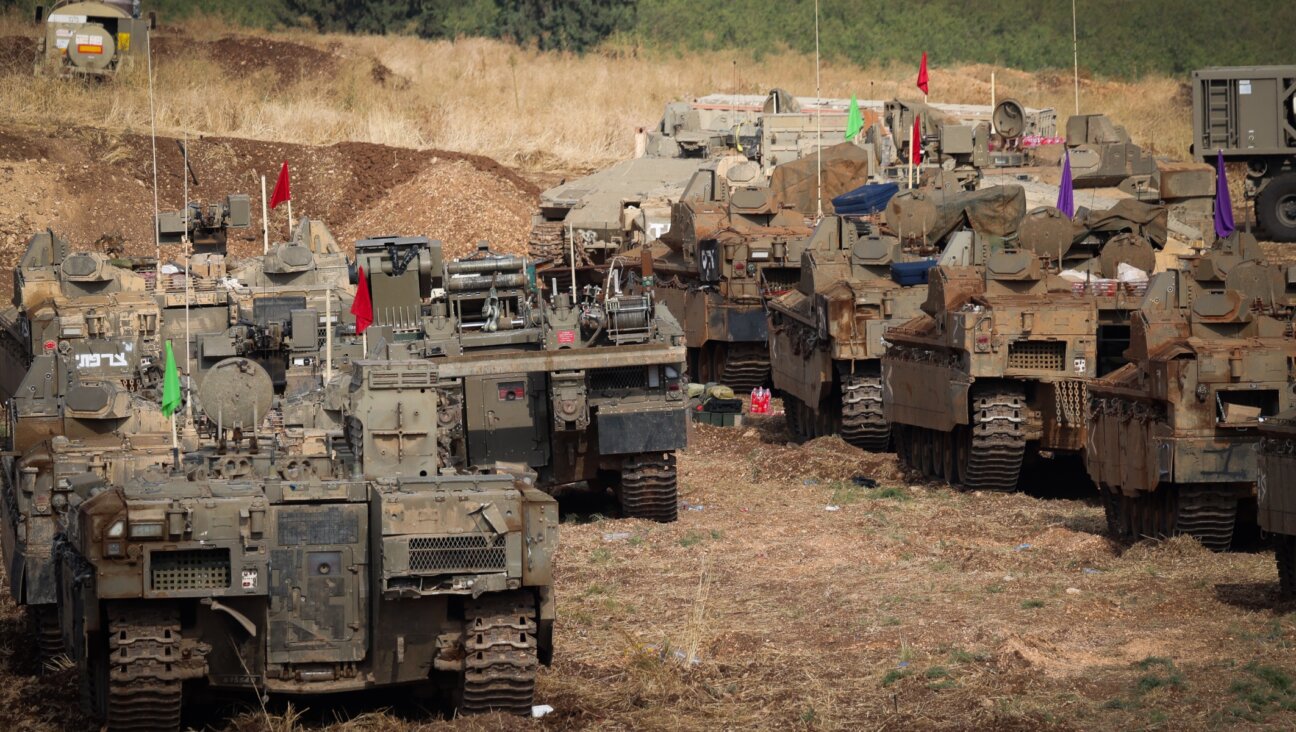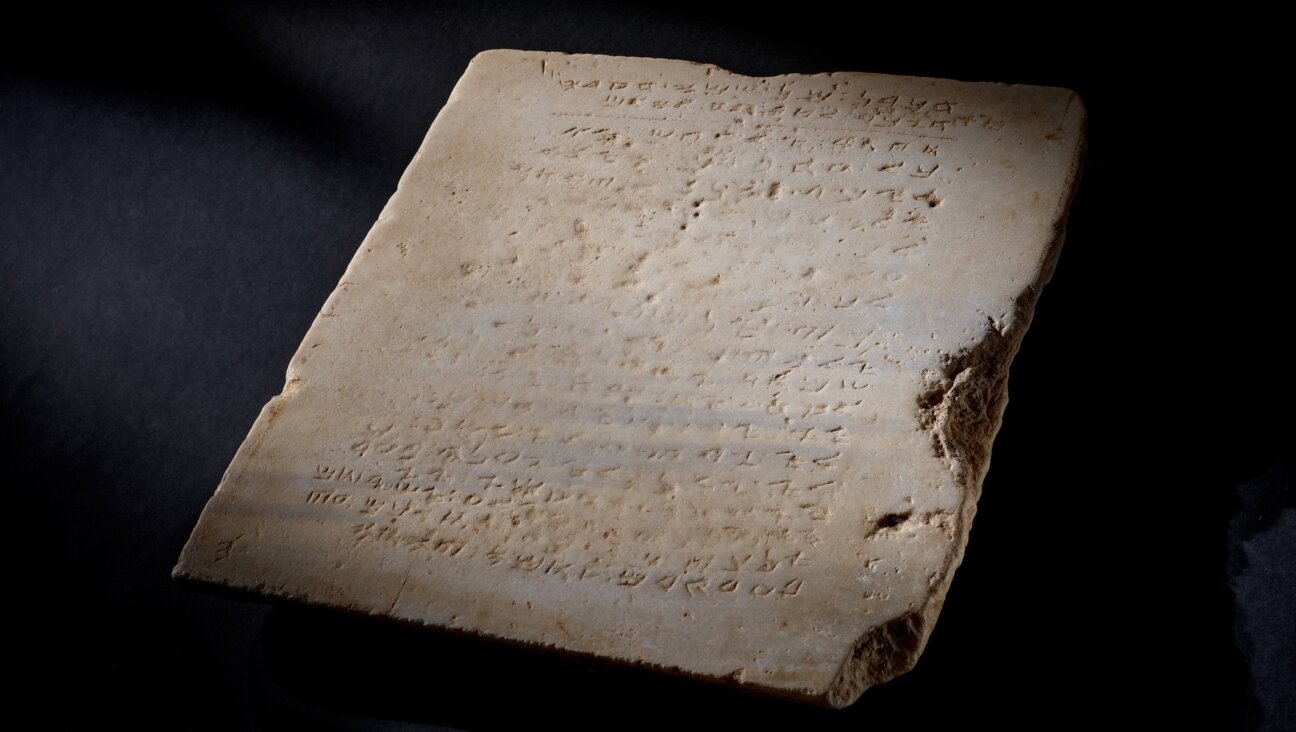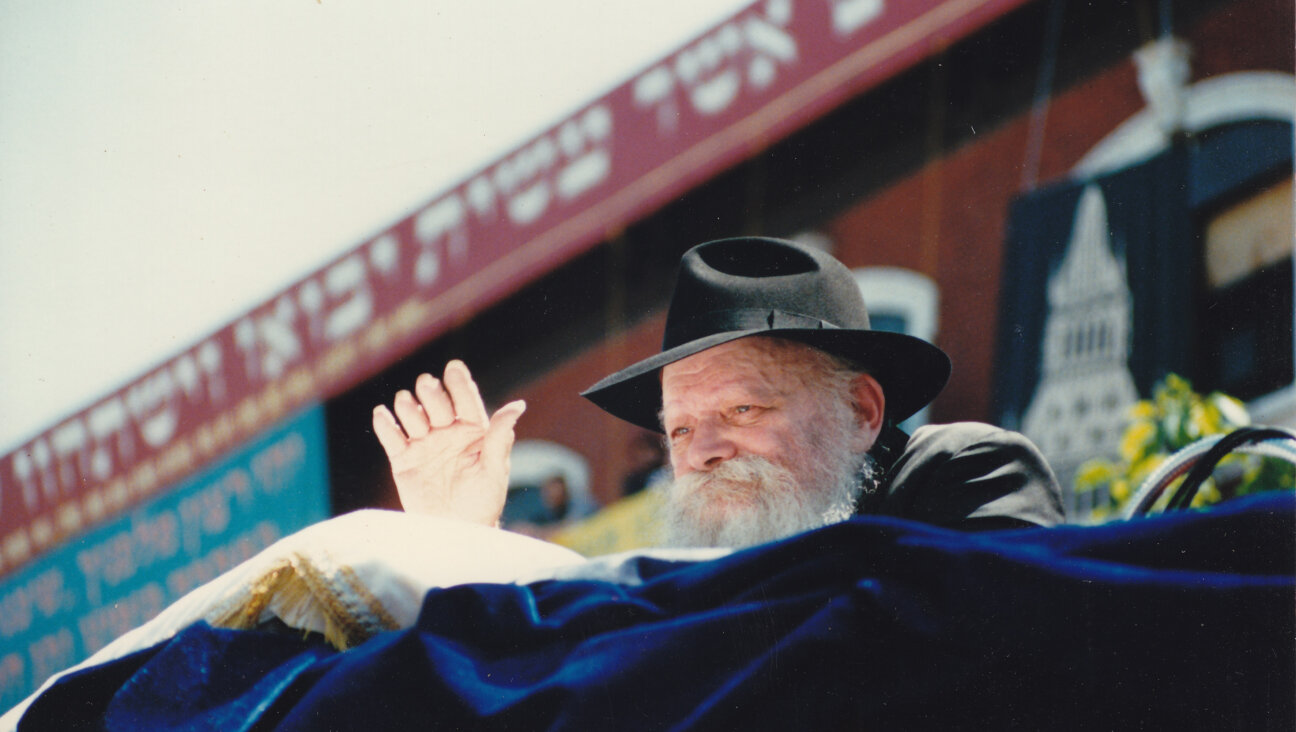April 18, 2003
Mideast Assyrians Are Aramaic’s Only Hope
Your article about the pro-American troop rally in Chicago (“Iraq War Pushes Little-Known Assyrians to Fore,” April 4) showed once again that as the Jewish community becomes more educated to the situation of medieval and contemporary Assyrians, it will be less subject to the biases and myths that many Christians and Jews retain about Assyrians based on the histories of the Jews contained in the Old Testament.
Assyrians today are the main speakers left in the entire world of a language that we all shared in the Middle East, Aramaic. It was a secular language that crossed religious borders until the Arabic of the tribes became elevated to the language “spoken” by God. Although it has never received state backing throughout the centuries since the fall of the ancient empire (except in the short-lived small kingdom in northern Mesopotamia based in Arbil and elsewhere), we, and the small number of Jews who used to live among us in the Middle East, have kept Aramaic on our tongues. Now these Jews have fled to Israel, and we are scattered. The language is in danger.
A few corrections to the article need to be made: The rally is reported to have attracted close to 4,000 — not 400 — participants. And the Assyrian diaspora exists in two distinct sections: The first is the diaspora within the Middle East resulting from the genocide of 1915-1923 and its aftermath, especially in the newly formed Iraq. The second diaspora is outside the Middle East, and this has ballooned since the 1960s, as Baathist policies in the Middle East and the rise of Islamist fundamentalism have combined to drive desperate Assyrians to Australia, Sweden, Germany and the United States. Our largest population is still in the Middle East. Otherwise we would not have any hope of keeping our language.
Eden Naby
Editor of the Assyrian Star
Author of “Afghanistan: Mullah, Marx and Mujahid” (Westview, 2002)
Brimfield, Mass.
‘Quartet’ Strikes Wrong Chord on ‘Road Map’
Thanks for highlighting the current humanitarian tragedy in the Congo (“Report: 3.3 Million Dead in Africa’s Bloodiest Conflict,” April 11). Like a broken record, the Arab world’s international politicians, many pundits and others in the media point out that after Iraq, the most critical conflict is the Israeli-Arab one. In order to solve it, they say, Israel must make additional sacrifices to help create a 22nd Arab state and a 57th Islamic state (“With ‘Road Map’ Set, Battle Shifts to Its Implementation,” April 11). Really? By any measure, the Congo crisis is far more critical a human-rights concern. Even ignoring the fact that Israel has been the victim of Arab aggression, wars, terror, hate and incitement for almost a century, the hypocrisy of the international community, with much energy harping on Israel, is glaring when one simply looks at the number of victims. How many people on both sides have died in all of the Arab wars on Israel since the conflict began in the early 1900s? Less than one-tenth of the Congo deaths since 1998. So where is the “quartet” focused on saving lives in the Congo? Or are African lives not as precious as others? Instead, the “quartet” pressures Israel with a “road map” that is as flawed and one-sided as the Oslo peace process and is more aptly described as a roadblock to peace. The truth is, the new Palestinian Authority “dual leadership” structure of Yasser Arafat and Abu Mazen notwithstanding, the Arabs still haven’t accepted Israel’s right to existence.
Golda Meir had it right so many years ago when she wryly observed that peace in Israel will come when the Arabs love their children more than they hate Jews. In the meantime, as we help in all possible ways, let’s observe how the “international community,” including the Islamic world, which we are constantly told is steeped in a religious tradition of peace, benevolence and kindness toward Muslims and non-Muslims alike, deals with the Congo crisis.
Naftali Robert Friedman
New York, N.Y.
Mamele’s Parents Hold Forth on Iconoclasm
As the mother of the East Village Mamele and a Jewish educator, I have no problem with Mamele upsetting the balance of Seder power in our household (which can indeed accommodate a brisket and matzo ball simultaneously, despite what she wrote in her April 4 column, but no matter). I do have a problem with the caption under my mother-in-law’s photo, not penned by my daughter, which refers to my Seder as “iconoclastic.” “Iconoclastic” does not mean “quirky”; as Philologos would surely attest. “Iconoclastic” means breaking the idols, i.e., flying in the face of conventions. The Seder is a living tradition, not a museum piece. The goal of the Seder is to involve the participants in the retelling of a grand narrative about our collective past and future.” It has always been about high drama and riveting the participants. When those rabbis of antiquity had our ancestors asking questions about the oddball customs of eating flatbread, dipping vegetables in salt water and lolling about on cushions, they clearly knew something about engaging an audience. Having a child ask the Four Questions, postponing the hunt for the afikomen until after the meal and structuring the post-prandial activities around singing are all ways to maintain a high level of involvement in learning. Iconoclastic, indeed; I can’t wait to unveil this year’s addition of Passover Jewpardy.
Carol K. Ingall
Dr. Bernard Heller Professor of Jewish Education
Jewish Theological Seminary and Josie’s Bubbe
Providence, R.I.
Many thanks to your editor, who, under the photo of my mother at the top of the April 4 column of the East Village Mamele, referred to my wife’s “Seder” as “iconoclastic.” “Mom’s Seder” certainly flies in the face of tradition — the tradition that was handed down, midor l’dor, from Moses to my Zayde and finally to me. That my daughter prefers the Seder of her mother speaks to the deviant path down which she would lead my granddaughter in establishing a true Jewish identity. Please assure your readers that I will do all in my power to maintain the tradition of “My Zeyde’s Seder” for her. After all, it is I who hands out the ransom for the afikomen.
Michael A. Ingall, M.D
Josie’s Zeyde
Providence, R.I.
A message from our CEO & publisher Rachel Fishman Feddersen

I hope you appreciated this article. Before you go, I’d like to ask you to please support the Forward’s award-winning, nonprofit journalism during this critical time.
We’ve set a goal to raise $260,000 by December 31. That’s an ambitious goal, but one that will give us the resources we need to invest in the high quality news, opinion, analysis and cultural coverage that isn’t available anywhere else.
If you feel inspired to make an impact, now is the time to give something back. Join us as a member at your most generous level.
— Rachel Fishman Feddersen, Publisher and CEO























